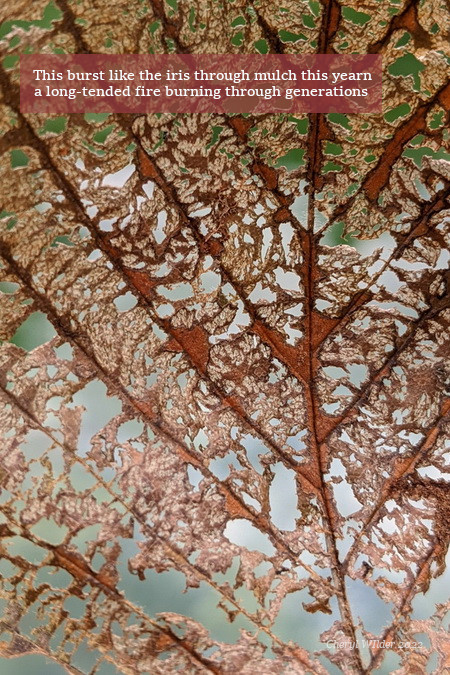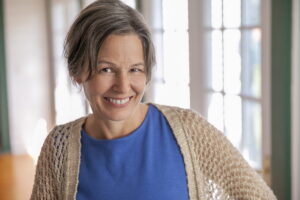September emanates a “coming home” aura. A renewal of belonging. It’s not the harvest that keeps me close to the house, preparing for winter. I’m not a farmer. I don’t even have a vegetable garden. Something deep in my bones–something creative, perhaps ancestral–pulls me to tend to my emotional soil in preparation for what I call the gestation season.
Lately, I’ve been thinking about how I’m not “of” a land. (I do mean “of” as in, a part connected to a whole.) I am of this earth in the way that I feel grounded and connected when my feet are dirty or while hiking. But I am not of place. I believe this is why I am obsessed with the emotional landscape more than the physical landscape. And yet, here I am, yearning to tap into the strength of location.
Fiction writer André Dubus III says, “The best writing comes not when you want to say something but when you want to find something.” In other words, writing is an act of searching. When I wrote Anything That Happens, I didn’t think of the process as searching (though I did want to understand). My subject was something that happened and I wanted to convey my experience with clarity. In hindsight, I see that in trying to be clear, I was searching for how to tell my story. Writers say that everyone has a story to tell, but I never saw myself as a storyteller for two reasons. First, my parents didn’t tell stories, and even more so, wouldn’t talk about the past. And second, I was ashamed of my story.
But I live in North Carolina, the self-proclaimed “Writingest State,” where people are proud to be of its landscape, and storytelling is a birthright. I wasn’t born or reared here, but North Carolina did raise me. The (life-defining) car crash happened nine months after I moved here in 1993. I was nineteen years old, a mere babe in the woods.
When I started to forgive myself for the car crash in my early twenties, I learned that I had to trust in myself first. The teachings of the beginner’s mind–“dropping our expectations and preconceived ideas about something, and seeing things with an open mind, fresh eyes, just like a beginner” (as described by Leo Babauta)–made sense to me, especially after reading the Zen Buddhism story A Cup of Tea. The crash had obliterated my expectations and preconceived ideas, so I spent countless hours creating space in my mind to remain open and fresh. To my advantage, any ideas I had about what a “grownup” should be were gone. My task was to let go of feeling shameful and unworthy. As I did this, I started to root in my belonging. None of this occurred because I had some great insight. It happened because I wanted to survive adulthood with inner peace.
Not putting down roots in place has had its consequences, mainly in my connection and participation in my community. Putting roots down within myself has come with great benefit. I’m strong on the inside. What I search for now is how to tell this side of my story. The story of connection and belonging to self. And the search has already led me to new territory. My story is rooted in place, in a state and its people who are my home.
Text on image: “This burst like the iris through much this yearn a long-tended fire burning through generations.”
Image and text by author. All rights reserved.




